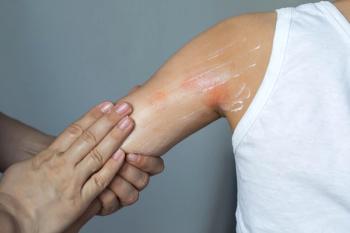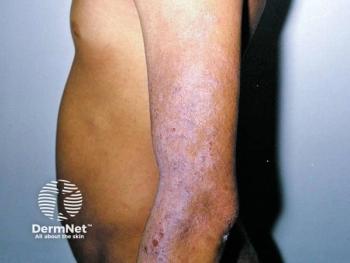
Immature skin poses problems for premature infants, caregivers
Advances in biologic and clinical research have contributed to improved understanding of the problems associated with immature skin in premature infants, Lawrence F. Eichenfield, M.D., said yesterday at a presentation on "Neonatal Skin and Complications."
Advances in biologic and clinical research have contributed to improved understanding of the problems associated with immature skin in premature infants, Lawrence F. Eichenfield, M.D., said yesterday at a presentation on "Neonatal Skin and Complications."
Skin immaturity in very low birth-weight infants creates problems for the infants as well as the nurses, doctors, staff members and families who care for them, says Dr. Eichenfield, clinical professor, University of California, San Diego.
Studies indicate that the underdeveloped skin loses much water, which can cause disturbances in hydration and electrolytes. Such infants also are vulnerable to infections and injury, difficulty maintaining body temperature, and an increased uptake of potentially toxic agents that come into direct contact with the skin.
Studies evaluating the usefulness and safety of routinely applying moisturizers to the skin have shown conflicting results, with some indicating that skin condition improves and infection rates decrease, while others indicate that skin conditions improve but the rate of nosocomial infections increases, Dr. Eichenfield says.
Newsletter
Like what you’re reading? Subscribe to Dermatology Times for weekly updates on therapies, innovations, and real-world practice tips.












